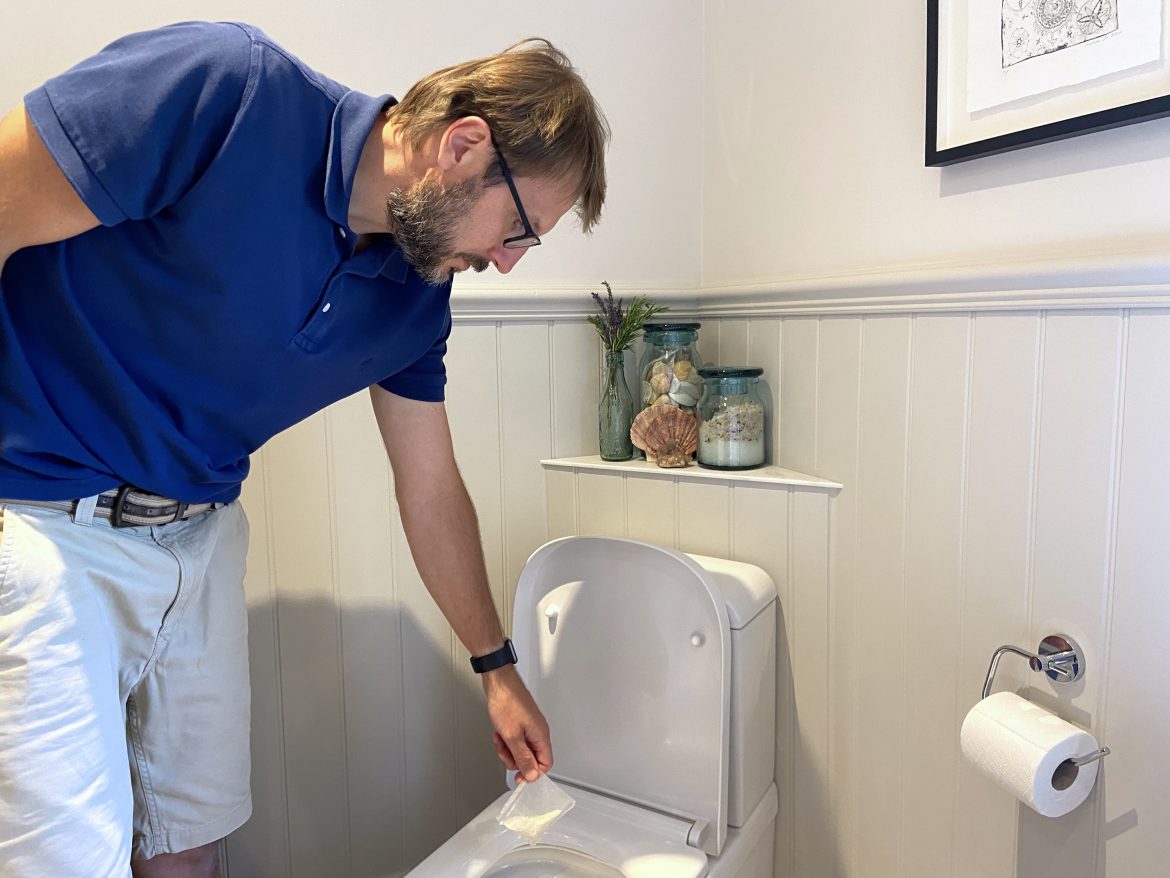We’ve seen a lot of awareness in the press in recent years about good gut health, but when you live as rural as we do then the health of your sewage or septic tank is just as important. Join us in learning about improving the health of our home sewage treatment plant using beneficial bacteria and probiotics.
In the video below we talk about the good, the bad and the ugly, and what ends up in sewage and septic tanks. We also try a new product to see if we can help get our tank back to a healthy state and learn about good bacteria.
The product that we’re trying out is called Muck Munchers, a formulation of different types of specialist bacteria that help degrade and break down toilet paper and tissue, fat, oil and grease, protein, starch and sugar in home sewage and septic tanks, and the pipes leading to them.
By looking after our tank and adding these beneficial bacteria, the end result should be a sludge layer that builds very slowly, resulting in a balanced and healthy tank that leads to less chance of soak away problems and blockages.
What appealed to us about Muck Munchers is that this is a chemical-free product that is based entirely on naturally occurring bacteria.
Competition – 10 lucky winners
Muck Munchers are giving away a one year pack of Muck Munchers XL to 10 lucky My Home Farm followers. This competition is open to residents of the UK only.
Simply answer this question: How much do Muck Munchers donate to NHS charities for each order they receive?
Email your answer, along with your postcode to verify you are a UK resident, to competitions@s991480879.websitehome.co.uk with the subject line “Muck Munchers Competition”.
The answer can be found on the Muck Munchers website.
By entering the competition participants agree to be bound by these terms and conditions.
Testing our tank
We know that our tank hasn’t been as healthy as it should since the Coronavirus outbreak, so it’s a perfect time for us to test our tank and see whether Muck Munchers can help it.
Our first test will be a visual one, and we’ll be able to see whether our sludge layer reduces in size, and whether build up slows down.
To keep findings scientific, we took a waste water sample from our tank before we added the Muck Munchers booster kit and sent it to a lab to get a base reading on our BOD, COD, dissolved solids, FOG, ammonia and nitrate levels.
We’ll give the tank a few months, adding monthly sachets of Muck Munchers, before we take another sample to get evaluated. This will let us know if they’re working and whether our tank is recovering. For the geeks (like me), here’s a breakdown of what we’re getting assessed.
BOD
Biochemical oxygen demand (BOD) represents the amount of oxygen consumed by bacteria and other microorganisms while they break down organic matter under aerobic conditions at a specified temperature and time (usually five days).
COD
Chemical oxygen demand (COD) represents the amount of oxygen used through chemical oxidation: forming CO2 or H2O.
Dissolved Solids
This is the measurement of all organic and inorganic material dissolved in the effluent.
FOG
This is the amount of fat, oil and grease (FOG) dissolved or solidified in the wastewater, which needs special bacteria and oxygen to be converted to energy, H2O and CO2.
Ammonia
Ammonia is produced through the decomposition process and indicates the effectiveness of the wastewater plant with microbes that nitrify the ammonia.
Nitrate
Nitrate is an energy source for the microbes in the tank and indicates the effectiveness of the wastewater plant.
I am very interested in receiving the results because they will give us a baseline for our tank at a time when it wasn’t functioning efficiently. We have made a conscious effort to cut down on antibacterial products and to restore the health of our tank. This, with the added beneficial bacteria, should see our tank bounce back in the weeks and months ahead.
We will keep you updated on our progress and on the effectiveness of Muck Munchers, so please follow our blog and subscribe to our YouTube channel.
